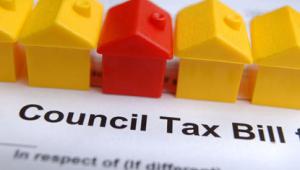By Vivienne Russell
3 December 2009
Council leaders have said they are making ‘enormous efforts’ to keep council tax bills down as ministers revealed next year’s funding settlement.
The November 26 announcement confirmed there would be no change to the proposed final year of the three-year settlement, established in 2008/09. English councils will receive an average 4% increase in central government formula grant, which will total £76.3bn in 2010/11.
Local government minister Barbara Follett said that, in return for the above-inflation rise, she expected average Band D council tax increases to be the lowest for at least 16 years, below 3%.
She warned that the government would again impose caps on authorities making excessive increases. ‘Already many councils are predicting freezes or cuts [to council tax] so this can be done,’ she said.
Local Government Association chair Margaret Eaton said: ‘The fact that the three-year settlement for formula grant has not been changed does give councils more ability to plan ahead.
‘Money is tight for everyone and nobody likes paying more council tax. Town halls have already delivered the lowest council tax increase for more than a decade and are making enormous efforts to keep next year’s bills down.’
She added that councils were facing a ‘perfect storm’ of rising demand for services at a time of falling revenues.
The settlement was accompanied by the usual ‘floors’, which set out minimum grant rises. These are 1.5% for top-tier authorities, 2.5% for police authorities and 0.5% for fire authorities and district councils.
Follett said: ‘In the current economic climate, the public expects government to be acting smarter with their money… We and the public also expect councils to play their part and find efficiency savings that make each taxpayer’s pound work as hard as possible.’
Eaton responded that local government had generated almost £5bn of efficiency savings since 2005.
‘Councils will not rest on their laurels and will look to make even more efficiency savings, but are being held back by the costs of centralised regulation, inspections and bureaucracy.
‘This is taking resources away from frontline services,’ she warned.
3 December 2009
Council leaders have said they are making ‘enormous efforts’ to keep council tax bills down as ministers revealed next year’s funding settlement.
The November 26 announcement confirmed there would be no change to the proposed final year of the three-year settlement, established in 2008/09. English councils will receive an average 4% increase in central government formula grant, which will total £76.3bn in 2010/11.
Local government minister Barbara Follett said that, in return for the above-inflation rise, she expected average Band D council tax increases to be the lowest for at least 16 years, below 3%.
She warned that the government would again impose caps on authorities making excessive increases. ‘Already many councils are predicting freezes or cuts [to council tax] so this can be done,’ she said.
Local Government Association chair Margaret Eaton said: ‘The fact that the three-year settlement for formula grant has not been changed does give councils more ability to plan ahead.
‘Money is tight for everyone and nobody likes paying more council tax. Town halls have already delivered the lowest council tax increase for more than a decade and are making enormous efforts to keep next year’s bills down.’
She added that councils were facing a ‘perfect storm’ of rising demand for services at a time of falling revenues.
The settlement was accompanied by the usual ‘floors’, which set out minimum grant rises. These are 1.5% for top-tier authorities, 2.5% for police authorities and 0.5% for fire authorities and district councils.
Follett said: ‘In the current economic climate, the public expects government to be acting smarter with their money… We and the public also expect councils to play their part and find efficiency savings that make each taxpayer’s pound work as hard as possible.’
Eaton responded that local government had generated almost £5bn of efficiency savings since 2005.
‘Councils will not rest on their laurels and will look to make even more efficiency savings, but are being held back by the costs of centralised regulation, inspections and bureaucracy.
‘This is taking resources away from frontline services,’ she warned.




















